BMW i4 vs Peugeot 5008 - Differences and prices compared
Compare performance (601 HP vs 325 HP), boot space and price (49400 £ vs 37600 £ ) at a glance. Find out which car is the better choice for you – BMW i4 or Peugeot 5008?
Costs and Efficiency:
Price and efficiency are often the first things buyers look at. Here it becomes clear which model has the long-term edge – whether at the pump, the plug, or in purchase price.
Peugeot 5008 has a clearly perceptible advantage in terms of price – it starts at 37600 £ , while the BMW i4 costs 49400 £ . That’s a price difference of around 11777 £.
In terms of energy consumption, the advantage goes to the BMW i4: with 14.70 kWh per 100 km, it’s clearly perceptible more efficient than the Peugeot 5008 with 17.80 kWh. That’s a difference of about 3.10 kWh.
As for electric range, the Peugeot 5008 performs hardly perceptible better – achieving up to 669 km, about 56 km more than the BMW i4.
Engine and Performance:
Under the bonnet, it becomes clear which model is tuned for sportiness and which one takes the lead when you hit the accelerator.
When it comes to engine power, the BMW i4 has a convincingly edge – offering 601 HP compared to 325 HP. That’s roughly 276 HP more horsepower.
In acceleration from 0 to 100 km/h, the BMW i4 is significantly quicker – completing the sprint in 3.70 s, while the Peugeot 5008 takes 6.50 s. That’s about 2.80 s faster.
There’s also a difference in torque: BMW i4 pulls distinct stronger with 795 Nm compared to 511 Nm. That’s about 284 Nm difference.
Space and Everyday Use:
Cabin size, boot volume and payload all play a role in everyday practicality. Here, comfort and flexibility make the difference.
Seats: Peugeot 5008 offers noticeable more seating capacity – 7 vs 5.
In curb weight, Peugeot 5008 is clearly perceptible lighter – 1700 kg compared to 2070 kg. The difference is around 370 kg.
In terms of boot space, the BMW i4 offers evident more room – 470 L compared to 348 L. That’s a difference of about 122 L.
When it comes to payload, Peugeot 5008 noticeable takes the win – 640 kg compared to 480 kg. That’s a difference of about 160 kg.
Who wins the race?
The BMW i4 proves to be leaves the rival little chance and therefore becomes our DriveDuel Champion!
BMW i4 is the better all-rounder in this comparison.
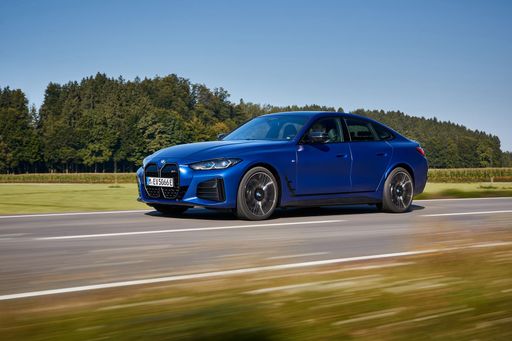
BMW i4
Costs and Consumption
View detailed analysis
Engine and Performance
View detailed analysis
Dimensions and Body
View detailed analysis
BMW i4
The BMW i4 arrives with the poise of a classic Gran Coupé, marrying BMW's playful handling with a sleek, modern interior that makes switching to electric feel like an upgrade rather than a compromise. For buyers who want a practical daily driver that still enjoys a spirited back-road run, the i4 quietly delivers smiles and a surprising dose of driver engagement.
details
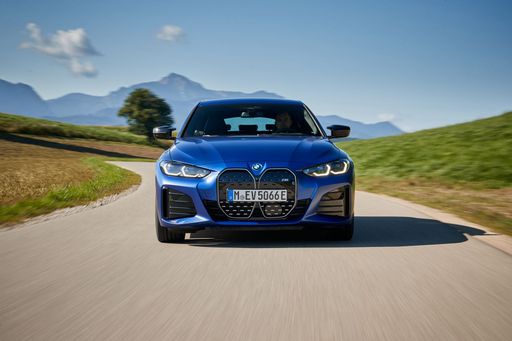
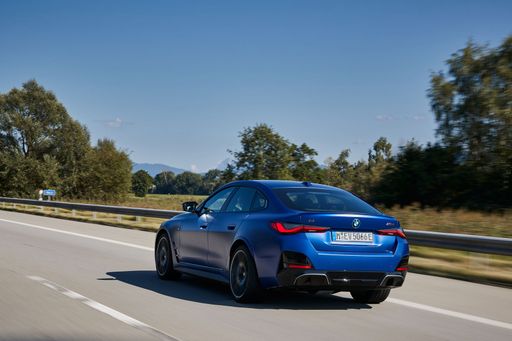
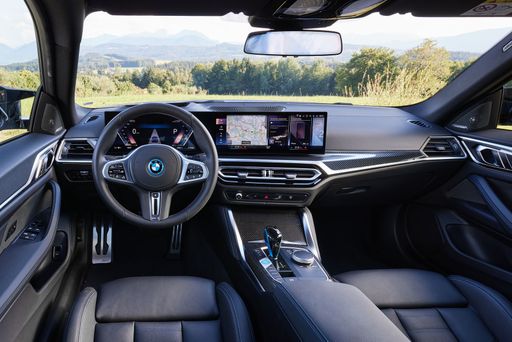
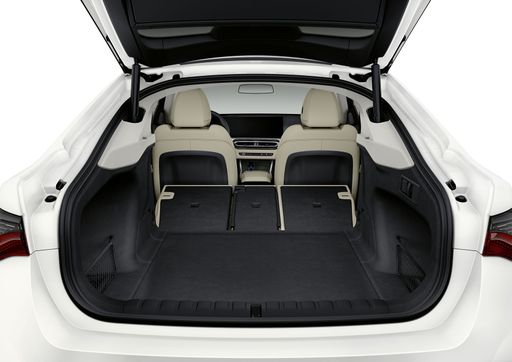
Peugeot 5008
The Peugeot 5008 blends Peugeot's sharp design with the space and versatility families actually need, wrapping clever packaging and a premium-feeling cabin in a crisp, SUV-like silhouette. It drives with more poise than you'd expect from a people carrier, serves up practical touches and flexible seating for everyday chaos, and still looks good when parked outside the school gates.
details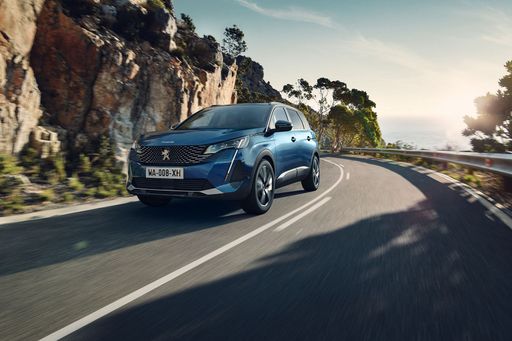

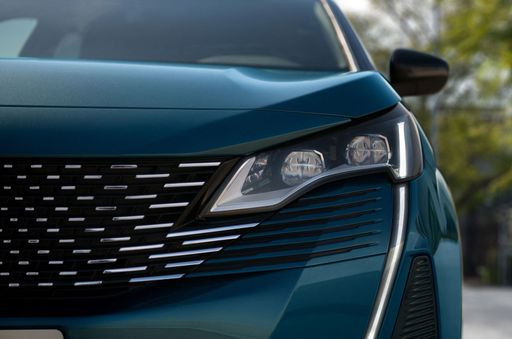

Costs and Consumption |
|
|---|---|
|
Price
49400 - 62500 £
|
Price
37600 - 54200 £
|
|
Consumption L/100km
-
|
Consumption L/100km
2.7 - 5.6 L
|
|
Consumption kWh/100km
14.7 - 16.7 kWh
|
Consumption kWh/100km
17.8 - 18.6 kWh
|
|
Electric Range
514 - 613 km
|
Electric Range
78 - 669 km
|
|
Battery Capacity
-
|
Battery Capacity
0.4 - 96.9 kWh
|
|
co2
0 g/km
|
co2
0 - 127 g/km
|
|
Fuel tank capacity
-
|
Fuel tank capacity
55 L
|
Dimensions and Body |
|
|---|---|
|
Body Type
Hatchback
|
Body Type
SUV
|
|
Seats
5
|
Seats
7
|
|
Doors
-
|
Doors
5
|
|
Curb weight
2070 - 2285 kg
|
Curb weight
1700 - 2344 kg
|
|
Trunk capacity
470 L
|
Trunk capacity
294 - 348 L
|
|
Length
-
|
Length
4791 mm
|
|
Width
1852 mm
|
Width
1895 mm
|
|
Height
-
|
Height
1694 mm
|
|
Max trunk capacity
-
|
Max trunk capacity
2178 - 2232 L
|
|
Payload
445 - 480 kg
|
Payload
596 - 640 kg
|
Engine and Performance |
|
|---|---|
|
Engine Type
Electric
|
Engine Type
Electric, Petrol MHEV, Plugin Hybrid
|
|
Transmission
Automatic
|
Transmission
Automatic
|
|
Transmission Detail
Reduction Gearbox
|
Transmission Detail
Reduction Gearbox, Dual-Clutch Automatic
|
|
Drive Type
Rear-Wheel Drive, All-Wheel Drive
|
Drive Type
Front-Wheel Drive, All-Wheel Drive
|
|
Power HP
286 - 601 HP
|
Power HP
145 - 325 HP
|
|
Acceleration 0-100km/h
3.7 - 6 s
|
Acceleration 0-100km/h
6.5 - 10.2 s
|
|
Max Speed
-
|
Max Speed
170 - 220 km/h
|
|
Torque
400 - 795 Nm
|
Torque
230 - 511 Nm
|
|
Number of Cylinders
-
|
Number of Cylinders
3 - 4
|
|
Power kW
210 - 442 kW
|
Power kW
107 - 239 kW
|
|
Engine capacity
-
|
Engine capacity
1199 - 1598 cm3
|
General |
|
|---|---|
|
Model Year
2025
|
Model Year
2024 - 2025
|
|
CO2 Efficiency Class
A
|
CO2 Efficiency Class
A, D, B
|
|
Brand
BMW
|
Brand
Peugeot
|
What drivetrain options does the BMW i4 have?
The BMW i4 is available as Rear-Wheel Drive or All-Wheel Drive.




